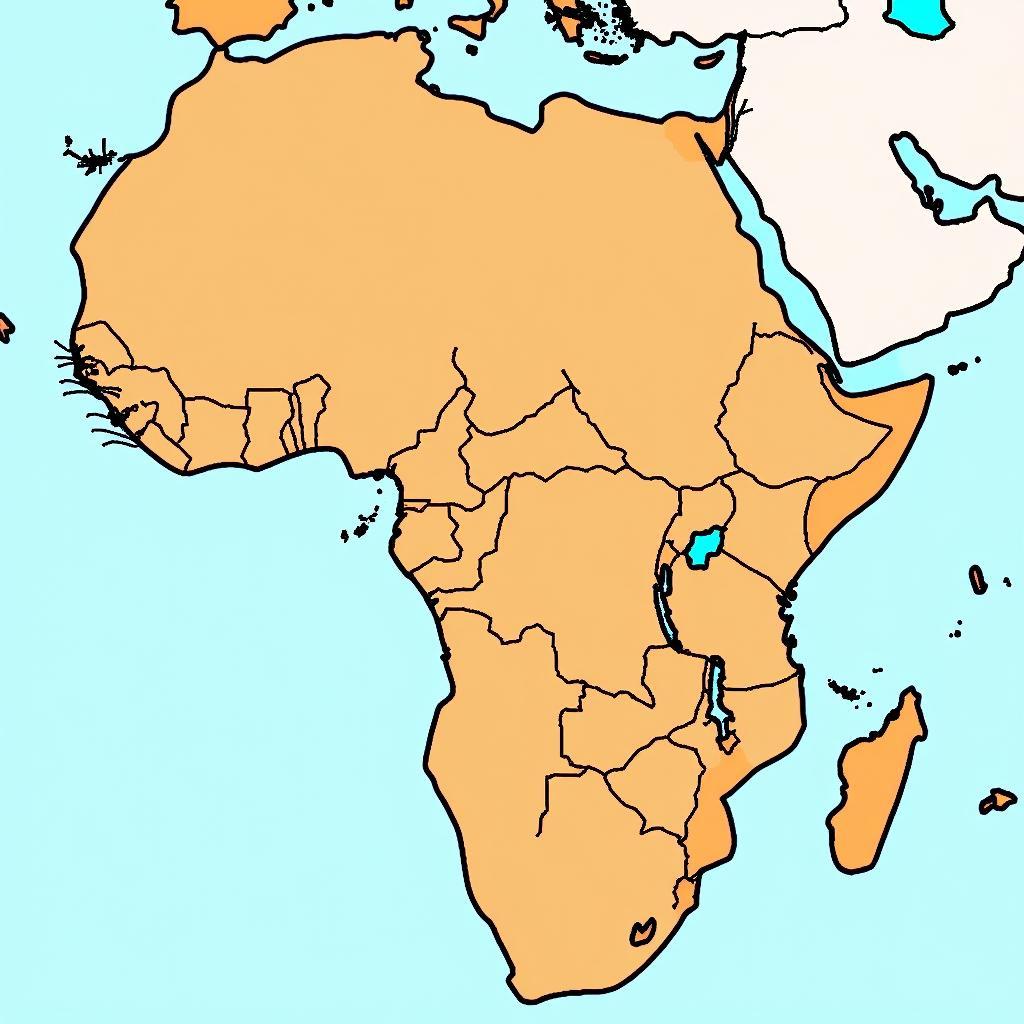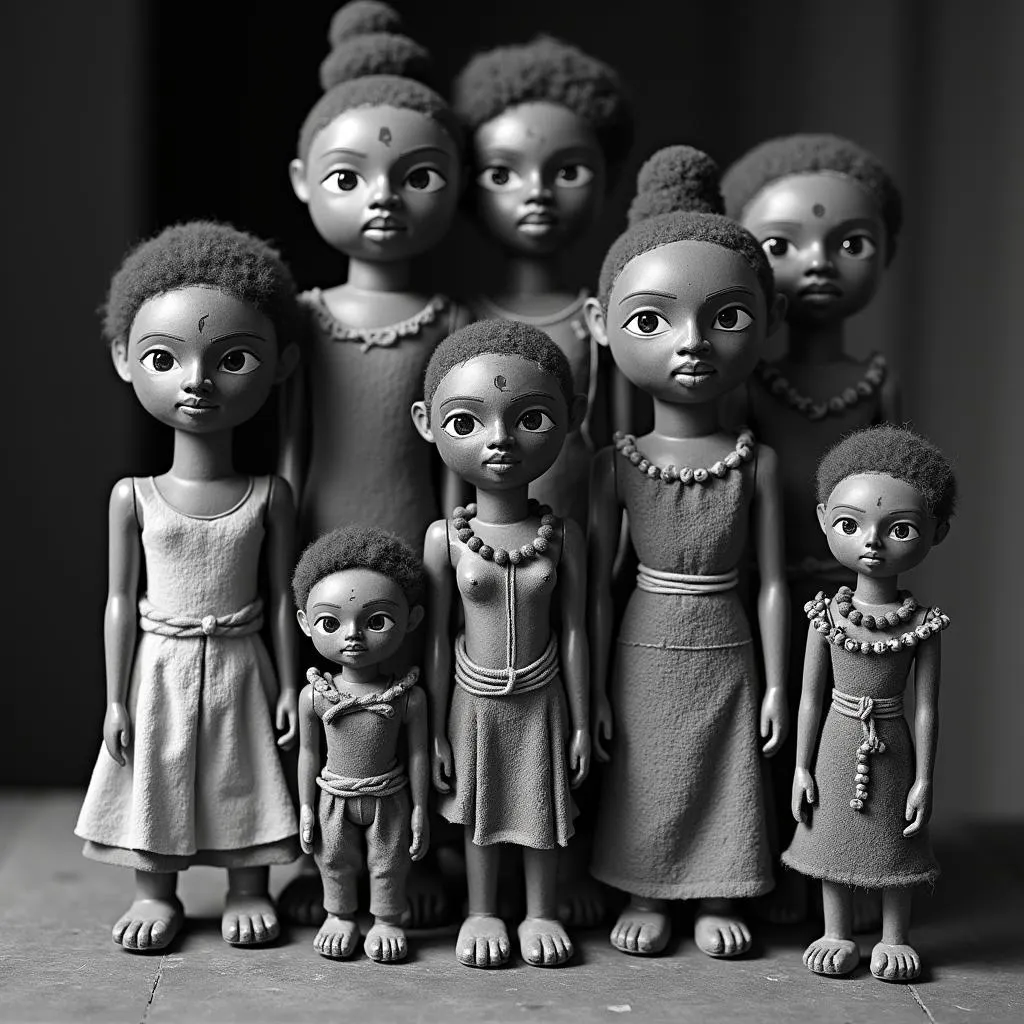The African Continent Under British Rule: A Legacy of Complexities
The African Continent Under British rule experienced a period of profound transformation, leaving a complex and lasting legacy. From the late 18th century to the mid-20th century, British influence extended across vast swathes of Africa, shaping its political, economic, and social landscape. This period saw the rise and fall of empires, the exploitation of resources, and the imposition of foreign systems of governance.
 Map of British Empire in Africa
Map of British Empire in Africa
Economic Exploitation and the Scramble for Africa
The late 19th century witnessed the “Scramble for Africa,” a period of intense competition between European powers for control of African territories. Britain, driven by its industrial revolution and desire for raw materials, played a leading role in this process. Resources like gold, diamonds, and rubber were extracted from African colonies, fueling British industries while often leaving local populations impoverished. This economic exploitation contributed to the underdevelopment of many African nations, a legacy that continues to impact the continent today. The establishment of colonial administrations, often with little regard for existing social structures, further disrupted traditional ways of life.
How Did British Rule Impact African Societies?
British rule significantly altered African societies, introducing new political systems, educational models, and religious beliefs. Traditional leadership structures were often undermined, replaced by British-appointed officials. The introduction of Western education, while providing some opportunities, often served to alienate Africans from their own cultural heritage. Christian missionaries actively sought converts, leading to the decline of indigenous religious practices. These changes, though varied across different regions and communities, fundamentally reshaped the social fabric of Africa.
The Rise of African Nationalism and the Path to Independence
Despite the oppressive nature of colonial rule, African resistance and nationalist movements emerged across the continent. These movements, fueled by a desire for self-determination and an end to colonial exploitation, gained momentum in the 20th century. Figures like Kwame Nkrumah in Ghana and Jomo Kenyatta in Kenya led their countries to independence, inspiring other African nations to follow suit. The struggle for independence was often long and arduous, marked by both peaceful protests and armed uprisings.
What were the long-term effects of British rule in Africa?
The long-term effects of British rule in Africa are multifaceted and continue to be debated. While some argue that British influence brought about positive developments such as improved infrastructure and education, others point to the enduring negative consequences of colonial exploitation, including political instability, economic inequality, and the loss of cultural identity. Some countries experienced relatively peaceful transitions to independence, while others faced protracted struggles and civil unrest. The imposition of arbitrary borders by colonial powers also contributed to ethnic tensions and conflicts that persist in some regions. You can learn more about how African countries changed their names after independence via this link: african country name change.
Conclusion: A Continent Reclaiming its Narrative
The African continent under British rule experienced a period of significant change, marked by both exploitation and resistance. The legacy of this era continues to shape the political, economic, and social landscape of Africa. As African nations continue to grapple with the challenges of post-colonial development, they are also actively reclaiming their own narratives, celebrating their rich cultural heritage and forging their own paths toward a brighter future. For a fascinating look at the presence of an african tribe in india, follow this link. You can also learn more about african american revolutionists here.
FAQ
- When did the Scramble for Africa begin? (Late 19th century)
- Who were some key figures in African independence movements? (Kwame Nkrumah, Jomo Kenyatta)
- What were some of the resources exploited by the British in Africa? (Gold, diamonds, rubber)
- What were the long-term effects of British rule in Africa? (Political instability, economic inequality, loss of cultural identity)
- How did British rule impact African societies? (Undermined traditional leadership, introduced Western education, promoted Christianity)
- What was the impact of the imposition of arbitrary borders? (Ethnic tensions and conflicts)
- What were some forms of African resistance to British rule? (Peaceful protests, armed uprisings)
Common Scenarios and Questions
-
Scenario: A student researching the impact of colonialism on Africa.
-
Question: How did British policies contribute to the underdevelopment of African economies?
-
Scenario: A traveler interested in learning about the history of a specific African country.
-
Question: What role did British colonialism play in shaping the political landscape of this country?
Further Exploration
Consider exploring topics such as the role of African women in resistance movements or the impact of British colonialism on specific African countries. You might also be interested in learning more about african cities starting with p or checking out african archaeology day ucl.
Call to Action
For further assistance or inquiries, please contact us at Phone: +255768904061, Email: kaka.mag@gmail.com, or visit our address: Mbarali DC Mawindi, Kangaga, Tanzania. Our customer service team is available 24/7.



